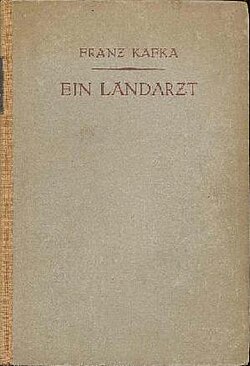| "Before the Law" | |
|---|---|
| Short story by Franz Kafka | |
 Drawing by Kafka used to illustrate the "Cathedral" chapter of The Trial | |
| Original title | Vor dem Gesetz |
| Language | German |
| Publication | |
| Published in | Selbstwehr (1915) Ein Landarzt (1919) Der Process (1925) |
| Publisher | Kurt Wolff (1919) |
| Publication date | 1915 |
"Before the Law" (German: "Vor dem Gesetz") is a short story by Czech writer Franz Kafka. It was printed twice during Kafka's life, but is best known as an embedded narrative in the posthumously published novel The Trial (German : Der Prozess). In the novel, "Before the Law" is delivered as a parable by a priest who stands in judgement over the protagonist’s case. The tale is offered as an allegorical explanation of Joseph K.’s guilt. Given that the precise nature of K.’s crime has never been explained to him by the court, the parable is offered in place of naming the crime of which he has been accused or as a substitute for an outline of the charges stacked against him.
